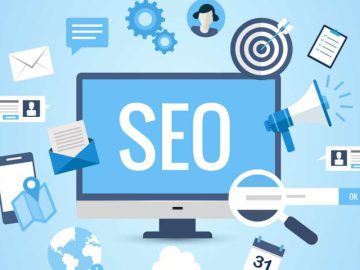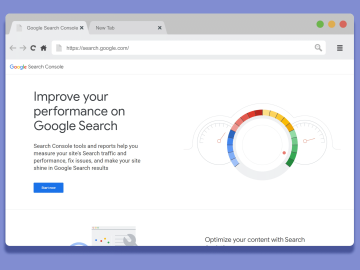For small businesses, mastering SEO (Search Engine Optimization) is crucial to compete in today’s digital landscape. SEO helps improve your website’s visibility, attract more potential customers, and drive growth. However, getting started can be overwhelming, especially if you’re new to the world of digital marketing. This is where ‘SEO tools for beginners’ come in handy. By utilizing these tools and following proven strategies, small businesses can effectively boost their online presence.
In this guide, SEO Igniter, a leading resource for small business SEO, provides seven essential tips to help you optimize your website, attract more traffic, and increase your conversion rates. Let’s dive into the strategies that can ignite your business growth.
1. Optimize Your Website for Mobile Users
In today’s mobile-first world, ensuring your website is mobile-friendly is not just an option but a necessity. Mobile optimization means your site should load quickly, be easy to navigate, and provide a seamless experience on all devices.
Search engines like Google prioritize mobile-friendly sites in their rankings, making this a critical aspect of your SEO strategy. Start by using SEO tools for beginners by SEOIgniter to analyze your site’s mobile performance and make necessary adjustments. SEO Igniter emphasizes the importance of mobile optimization as a foundation for a successful SEO campaign.
2. Focus on Local SEO
For small businesses, local SEO is essential in attracting customers in your area. By optimizing your website for local search terms, you increase the chances of appearing in local search results when potential customers look for products or services near them. Start by claiming your Google My Business listing, ensuring that your business name, address, and phone number are consistent across all online platforms.
Additionally, encourage satisfied customers to leave positive reviews, as these can significantly impact your local rankings. Local SEO tools for beginners can help you identify relevant keywords and track your performance in local search results.
3. Create High-Quality, Relevant Content
Content is king in the world of SEO. Creating high-quality, relevant content that addresses your audience’s needs and interests is crucial for improving your search engine rankings. Focus on producing blog posts, articles, videos, and other content that provides value to your target audience.
SEO Igniter suggests using content optimization tools to identify popular topics and optimize your content for search engines. Regularly updating your website with fresh, informative content not only helps with SEO but also establishes your business as an authority in your industry.
4. Use Long-Tail Keywords
Long-tail keywords are longer, more specific phrases that potential customers are likely to use when searching for something particular. Unlike short, generic keywords, long-tail keywords often have less competition, making it easier for your site to rank higher in search results.
For example, instead of targeting the broad keyword “shoes,” you might focus on “affordable running shoes for women.” SEO tools for beginners can help you identify relevant long-tail keywords for your business. SEO Igniter recommends incorporating these keywords naturally into your content, meta descriptions, and headings to improve your chances of ranking well.
5. Optimize Your On-Page SEO
On-page SEO refers to the optimization of individual pages on your website to rank higher in search results. This includes optimizing title tags, meta descriptions, headers, and images with relevant keywords.
Make sure each page on your website has a unique title and meta description that accurately reflects the content of the page. Additionally, use header tags (H1, H2, etc.) to structure your content and make it easier for search engines to understand. SEO Igniter advises using on-page SEO tools to audit your website and identify areas for improvement.
6. Build High-Quality Backlinks
Backlinks, or links from other websites to your site, are a crucial factor in SEO. High-quality backlinks from reputable sites signal to search engines that your content is valuable and trustworthy. Focus on building relationships with other businesses and influencers in your industry to earn backlinks.
You can also create shareable content, such as infographics or guest posts, to encourage others to link to your site. Using backlink analysis tools, even those tailored for beginners, can help you track your progress and identify potential opportunities. SEO Igniter highlights that while building backlinks takes time, the effort is well worth it for improving your site’s authority and rankings.
7. Monitor and Analyze Your SEO Performance
Monitoring and analyzing your SEO performance is crucial for understanding what’s working and where you need to improve. Regularly check your website’s traffic, rankings, and conversion rates using SEO tools for beginners. Look for patterns or trends that can help you refine your strategy.
SEO Igniter recommends setting up Google Analytics and Google Search Console to track your progress and gain insights into your audience’s behavior. By continuously monitoring your SEO efforts, you can make data-driven decisions to optimize your strategy and achieve better results.
FAQs
What are some beginner-friendly SEO tools I can use for my small business?
Several SEO tools for beginners can help small businesses optimize their websites, including Google Analytics, Google Search Console, Yoast SEO, and SEMrush. These tools offer a range of features, from keyword research to performance tracking, that can simplify the SEO process for newcomers.
How long does it take to see results from SEO efforts?
The timeline for seeing results from SEO can vary depending on factors like competition, keyword difficulty, and the quality of your content. Generally, it can take anywhere from 3 to 6 months to start noticing significant improvements in your rankings and traffic.
Can I manage SEO for my small business on my own, or should I hire an expert?
While many small business owners manage their own SEO using beginner-friendly tools, hiring an expert can provide more comprehensive and effective results. An SEO professional can help with advanced strategies, competitive analysis, and ongoing optimization.
What is the difference between on-page and off-page SEO?
On-page SEO involves optimizing individual pages on your website, such as using relevant keywords in your content, optimizing meta tags, and improving site structure. Off-page SEO, on the other hand, focuses on building backlinks and increasing your site’s authority through external activities.
Conclusion
Implementing these seven essential SEO tips can significantly boost your small business’s online presence and help you attract more customers. By focusing on mobile optimization, local SEO, high-quality content, long-tail keywords, on-page SEO, backlinks, and performance monitoring, you can create a robust SEO strategy that drives results.
Remember to utilize ‘SEO tools for beginners’ to simplify the process and make informed decisions.
Whether you’re just starting out or looking to refine your existing efforts, SEO Igniter is here to support your journey to online success. Incorporate these strategies, and watch your small business thrive in the digital marketplace with the help of SEO Igniter.
Read More From Techbullion





